MAY 2023 - Blues Vol 39 No. 5
- Text
- Police jobs
- Police war stories
- Police news
- Blues police magazine
- School shooting
- National bank shooting
- Police heroes
- Largest police magazine
- Wwwbluespdmagcom
- Breidenbach
- Heroes
- Shootings
- Firearms
- Enforcement
- Blues
AROUND THE COUNTRY
AROUND THE COUNTRY CALIFORNIA California Looks to Take Away Citizen’s Rights to Cooperate With Police. In the West Coast’s constant string of efforts to keep the police officers of a community away from their community, California had decided to try to revoke consent searches. To try to understand the reasons for this effort, one must enter into the mind of the Utopian politician or activist who thinks that the police are always the enemy and people, including suspected lawbreakers, should be left alone. To be sure, there is a fundamental right to go about one’s business with minimal government interference. As Justice Brandies once put it “The makers of the Constitution conferred the most comprehensive of rights and the right most valued by all civilized men—the right to be let alone.” We also understand the concept of our “social contract” between the public and its governance, first postulated in the 16th century wherein some personal freedoms are subrogated for the protection of all. These protections, without which our freedoms would be limited by those with physical and economic power, are in turn limited by the Constitution and the laws instituted by elected representatives of the people. If the reader will indulge a few more sentences of our civics lesson, it is clear that throughout history, both in the U.S. and any civilized nation or tribe since man gathered in social units, one of the first functions of community governance is the exercise of police power. Whether appointed as a career or as an obligation of able-bodied citizens subject to action from the hue and cry of a night watchman, there have always been peacekeepers empowered by law. yrs. Importantly, a concept at risk of being forgotten, our American law enforcement is predicated on the principle that the people are the police, and the police are the people. Most prominently articulated by Sir Robert Peele, the founder of the London Metropolitan Police whose Peelian principles are a model for modern policing, it means that every citizen has an obligation to act as a peacekeeper. Part of that principle is embodied in laws that still exist in most states that require a citizen to obey a request from a police officer to assist in an emergency. The old west’s Sheriff’s Posse is another example. The common law concept of a citizen’s arrest is still active in most jurisdictions. Notably, a concept forgotten by those antagonistic to the very existence of police agencies is the requirement in every U.S. jurisdiction that a citizen must submit peaceably to a lawful arrest. As we examine the series of recent legislative and policy decisions that contradict years of acceptable police practice, it is clear that rather than strengthening communities to engage in peace-keeping, the gulf between the responsibility of citizens and their appointed protectors has widened. Efforts to eliminate citizen’s arrest laws, stand your ground laws, and constant efforts to limit citizens’ right to possess firearms all move toward making only the official agent of the government as peacekeepers. Further reducing proactive police interactions are laws that prohibit police from pursuing suspects, removing reasonable use of force tools, eliminating qualified immunity (but only for police, not prosecutors, judges, or politicians), legalizing jay-walking, legalizing narcotics use and possession, making felonies into misdemeanors, eliminating stops for traffic violations, and now California’s efforts to prohibit its citizens from consenting to a search by law enforcement. The debate on the merits of California’s proposal is unfolding but Assembly Bill 93 would eliminate consent as a valid search by a law enforcement officer. The first answer to defend against unwanted police searches is to answer “No” when an officer asks permission to search one’s car, person, or home. No new law is needed. If the officer is relying entirely on the person’s consent, then no lawful search can proceed and the person’s refusal cannot be a factor in establishing legal grounds for the search. A search based on articulable facts that give an officer probable cause may proceed without consent, with a preference for obtaining a warrant if circumstances allow. But Assemblyman Isaac G. Bryan, the author of the bill, thinks the police shouldn’t be asking for assistance in investigating matters, and citizens shouldn’t be answering. Bryan is an outspoken advocate of defunding the police and diverting money from law enforcement. It is one thing to distrust police as a political stance, but this bill distrusts citizens and takes away their right to participate in lawful police investigations. The proposal is not merely an insult to law enforcement, it is an affront to the very nature of community peace-keeping and individual responsibility. ABOUT THE AUTHOR: Joel F. Shults, Ed.D, is a retired police chief, an award winning writer, college professor, trainer, and first responder chaplain. He is the author of several law enforcement related books and articles. Shults currently serves as a municipal judge and a coroner’s investigator in rural southern Colorado. Joel can be found on twitter @retiredsorta, and online at joelshults.blogspot.com, and streetsmartforce.com. We are ready for 2023! Experience the only First Responder owned and operated THEME studio in the Country! 38 The BLUES The BLUES 39
- Page 1 and 2: The BLUES 1
- Page 4: FOUNDED IN 1984 OUR TEAM MICHAEL BA
- Page 8: as of 2022 vary widely, with some s
- Page 12: 12 The BLUES The BLUES 13
- Page 16: GUEST COMENTARY Cops Pursuing Crimi
- Page 20: GUEST COMENTARY “Police Violence
- Page 24: AROUND THE COUNTRY yrs. LAFOURCHE P
- Page 28: AROUND THE COUNTRY yrs. NEW ORLEANS
- Page 32: AROUND THE COUNTRY yrs. NYSSA, OR.
- Page 36: AROUND THE COUNTRY yrs. LOS ANGELES
- Page 42: AROUND THE COUNTRY yrs. DALLAS,TX.
- Page 46: AROUND THE COUNTRY NOW HIRING! Cali
- Page 50: AROUND THE COUNTRY possibly other s
- Page 54: AROUND THE COUNTRY GREENFIELD, Mass
- Page 58: Thousands of officers converge on W
- Page 62: SCHEDULE OF EVENTS Tuesday, May 9 t
- Page 66: NASHVILLE Whether you want to be or
- Page 70: LOUISVILLE Old National Bank Shooti
- Page 74: WHAT MAKES A TRUE HERO in Law Enfor
- Page 78: AROUND THE COUNTRY new products yrs
- Page 82: yrs. MAY 1-5 Detective and New Crim
- Page 86: HONORING OUR FALLEN HEROES POLICE O
- Page 90:
HONORING OUR FALLEN HEROES SENIOR P
- Page 94:
Ghost Patrol: The scariest things c
- Page 98:
WORDS BY OFFICER BRADLEY NICKELL I
- Page 102:
A BADGE OF HONOR healing our heroes
- Page 106:
106 The BLUES The BLUES 107
- Page 110:
DR. TINA JAECKLE blue mental health
- Page 114:
THE OPEN ROAD 2023 Jeep Wrangler Ru
- Page 118:
ADS BACK IN THE DAY 118 The BLUES T
- Page 122:
yrs. Your Source for Law Enforcemen
- Page 126:
yrs. Starting in 2003, Cop Stop Inc
- Page 130:
yrs. PLANET FORD IN SPRING, 20403 I
- Page 134:
yrs. 4807 KIRBY DRIVE • HOUSTON,
- Page 138:
STATEWIDE VACANCIES FOR JAILERS Win
- Page 142:
142 The BLUES The BLUES 143
- Page 146:
ALDINE I.S.D. POLICE DEPARTMENT JOI
- Page 150:
October 15 WATCH FOR NEW TEST DATES
- Page 154:
154 The BLUES The BLUES 155
- Page 158:
GALVESTON COUNTY SHERIFF’S OFFICE
- Page 162:
162 The BLUES The BLUES 163
- Page 166:
FOR A LIMITED TIME. The Harris Coun
- Page 170:
170 The BLUES The BLUES 171
- Page 174:
Welcome Aboard League City Police D
- Page 178:
MEMORIAL VILLAGES POLICE DEPARTMENT
- Page 182:
182 The BLUES The BLUES 183
- Page 186:
PORT HOUSTON POLICE DEPARTMENT WE A
- Page 190:
190 The BLUES The BLUES 191
- Page 194:
194 The BLUES The BLUES 195
- Page 198:
198 The BLUES
Inappropriate
Loading...
Mail this publication
Loading...
Embed
Loading...




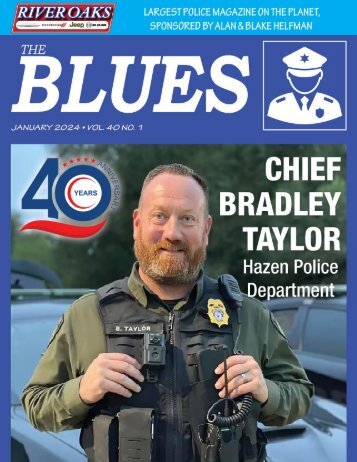

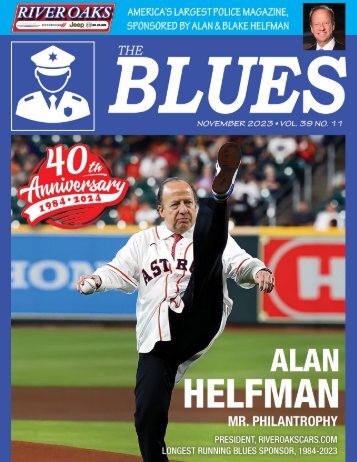


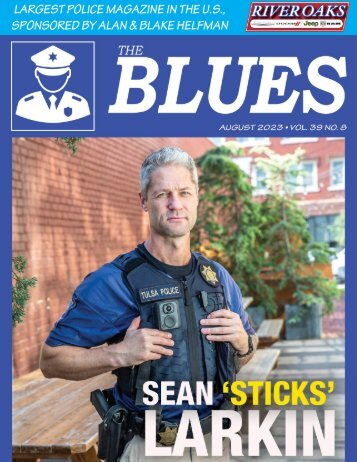


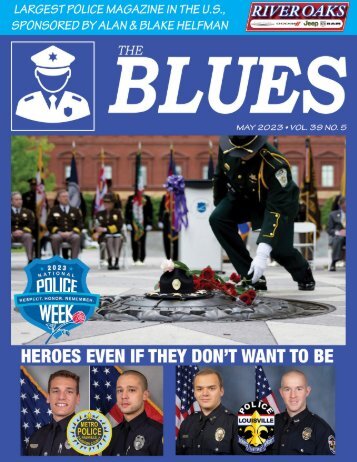
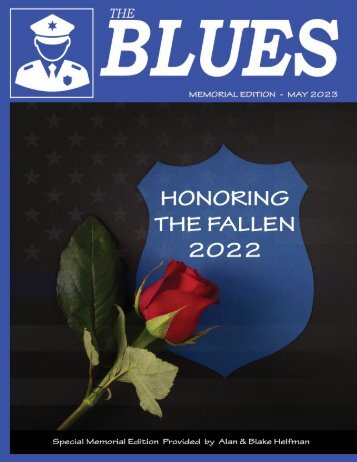
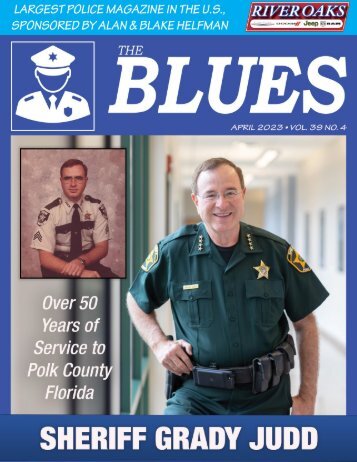
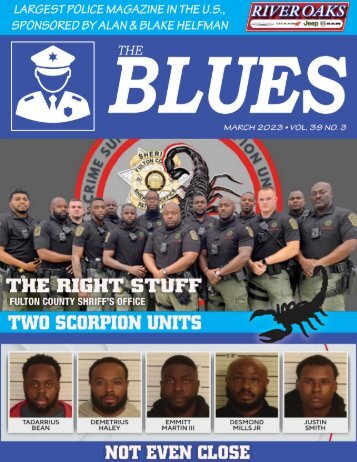

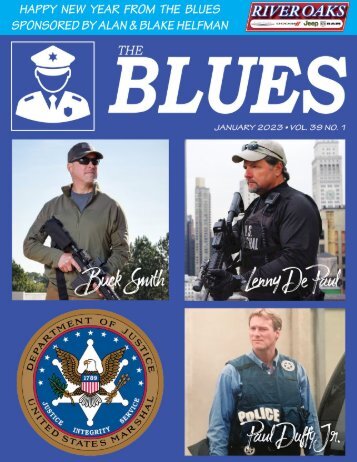



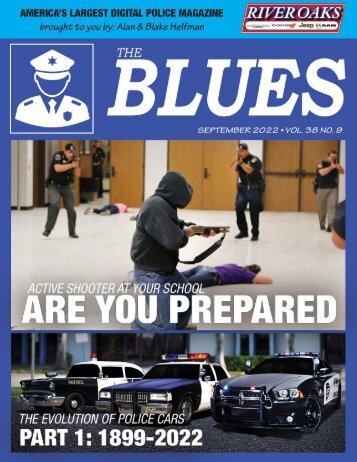


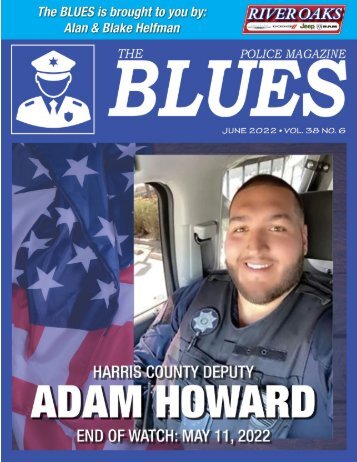
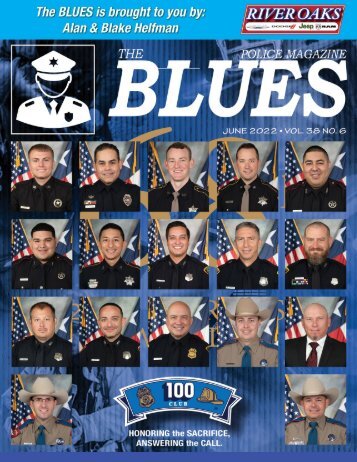
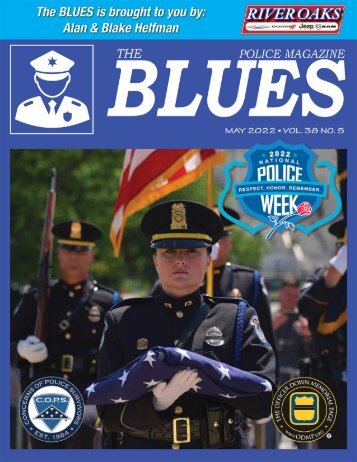
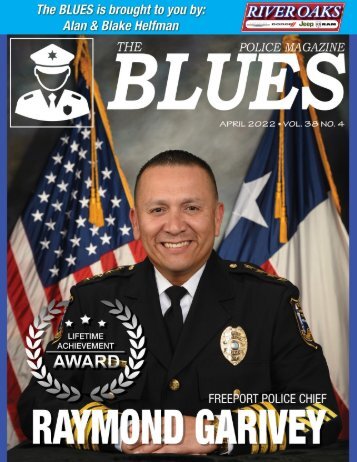
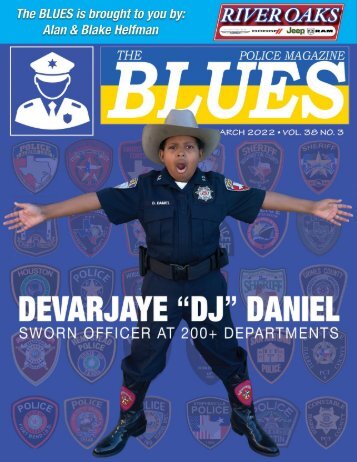
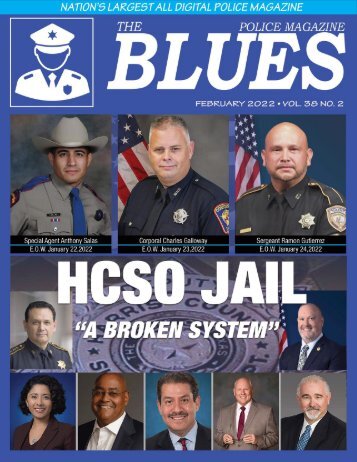
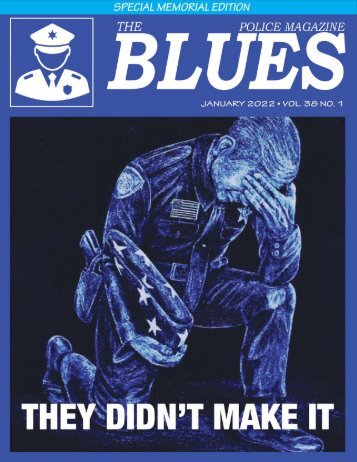

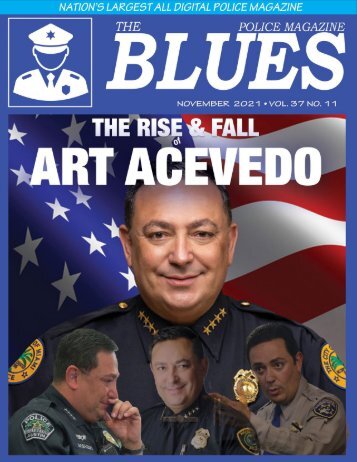
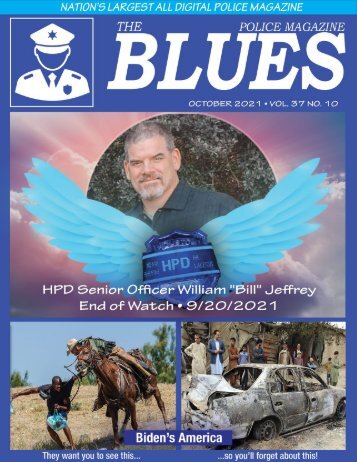
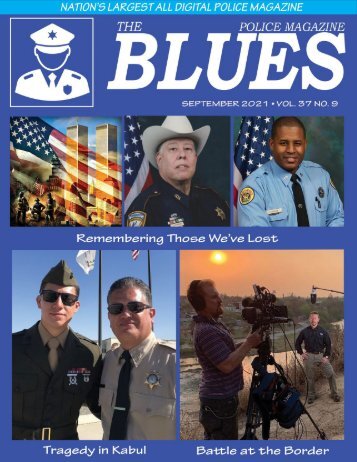
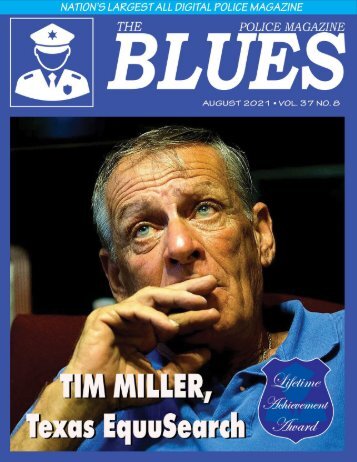
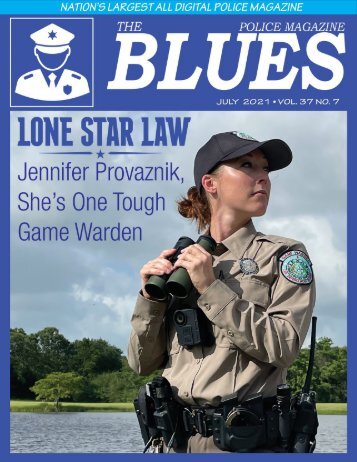



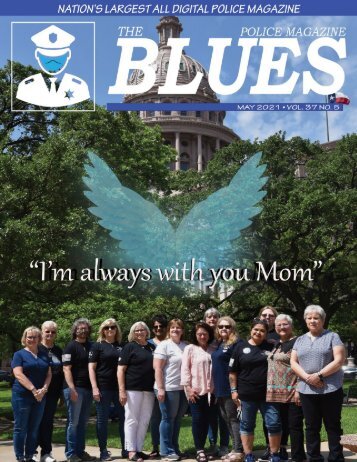
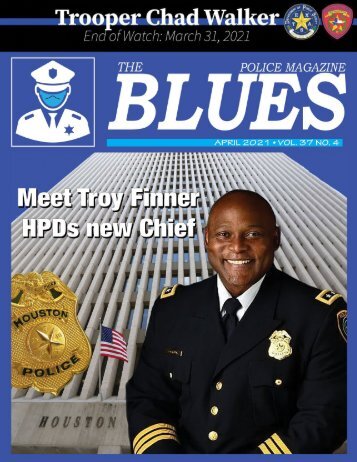
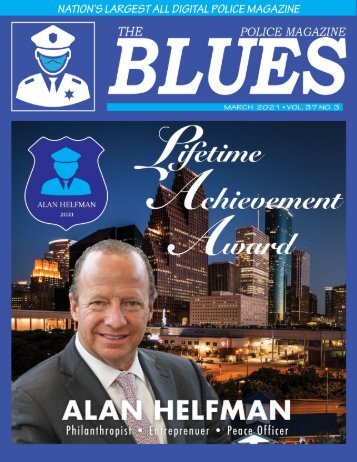
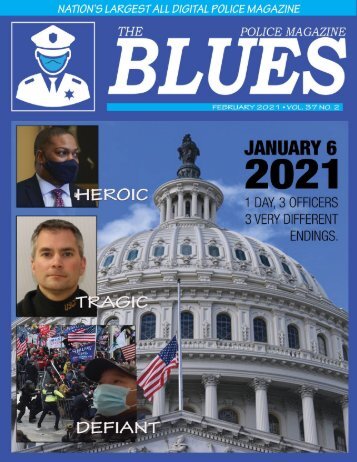


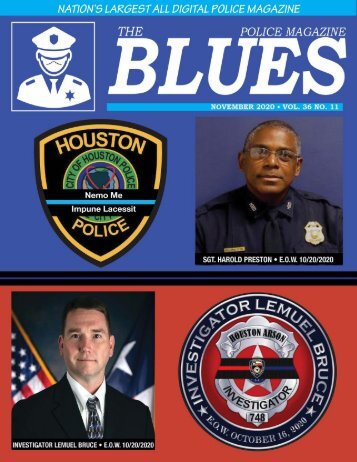


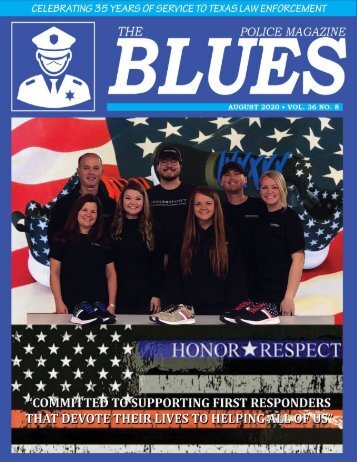
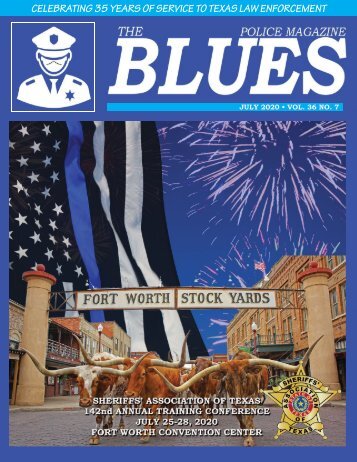
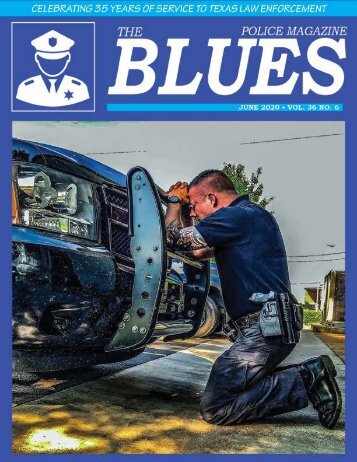

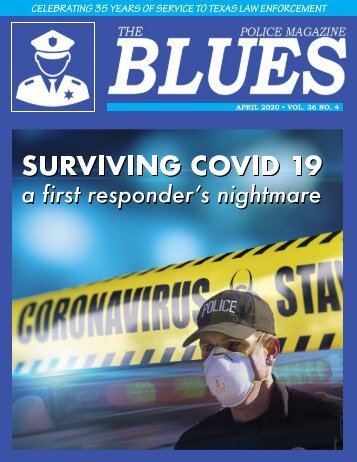
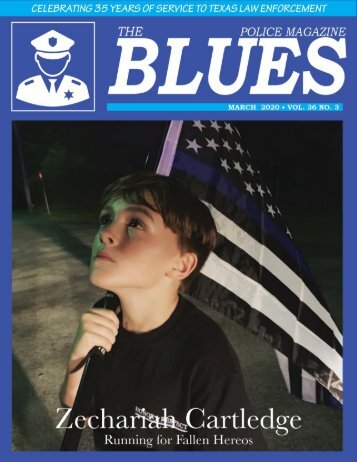

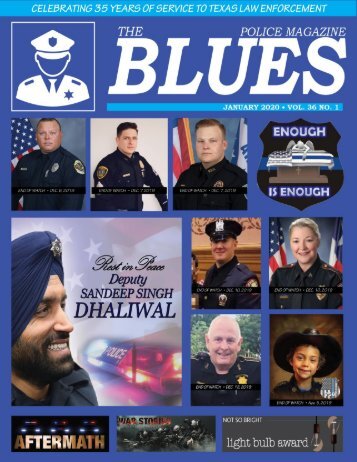
Follow Us
Facebook